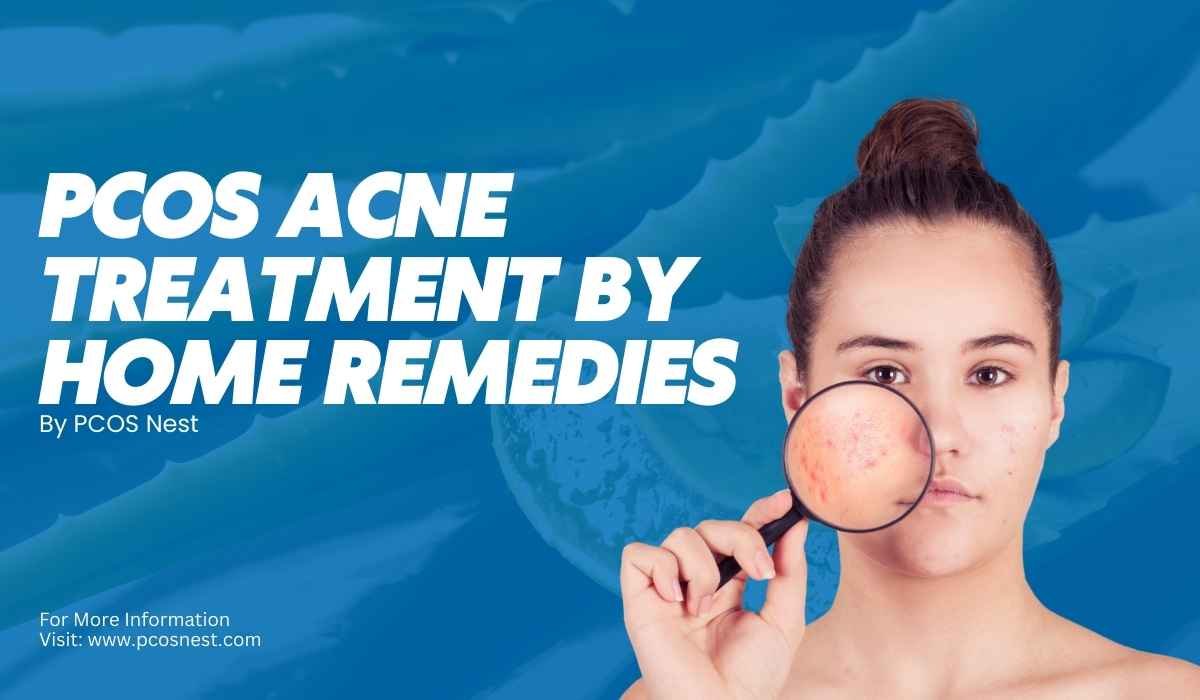PCOS Acne & Healthy Diet:
To treat PCOS acne, firstly you have to make changes in your diet. Actually, PCOS acne occurs due to hormonal imbalances, especially raised androgen levels, which increase sebum (oil) production in the skin. This excess oil clogs pores and causes inflammation. Due to this, a healthy diet is very crucial.
For acne treatment, you should drink plenty of water & avoid refined carbs, and sugary, processed, and fried items.
No matter what remedies you use, they will be ineffective if you don’t improve your diet.
If you want glowy and clear skin eat anti-inflammatory food like green leafy vegetables and include healthy omega-3 fatty acids in your diet which are present in salmon, olive oil, and chia seeds.
Also utilize Vitamin C-rich fruits like oranges, lemons, etc. daily.
If your androgen level is very high, then you should avoid dairy products. Because low-fat dairy can elevate androgens and make PCOS acne worse.
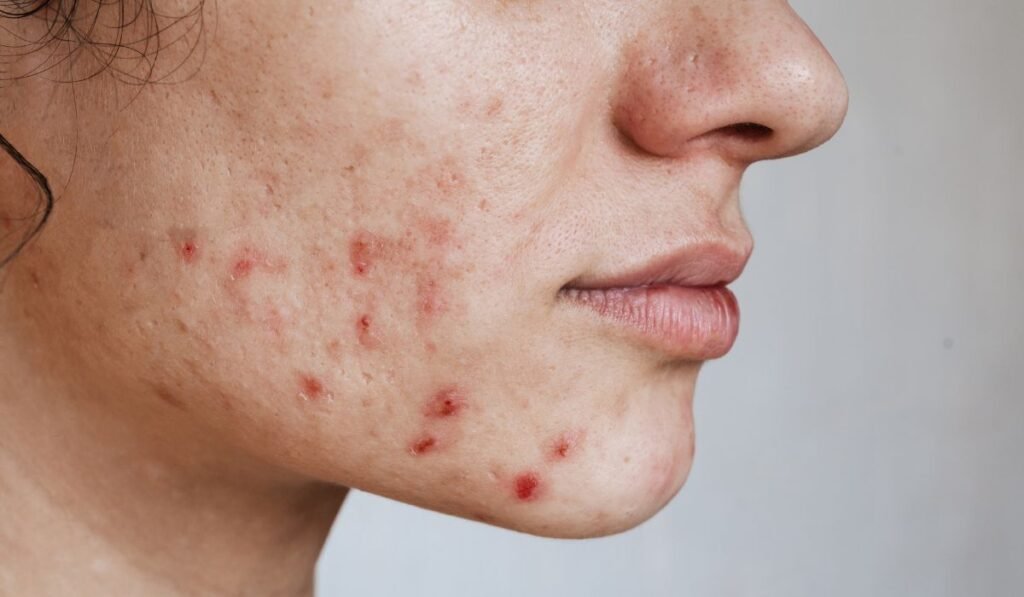
Effective & Simple Remedies for PCOS Acne Treatment At Home:
Let’s discuss some simple & effective home remedies for acne treatment.
1. Spearmint Tea
Spearmint tea helps in reducing androgen levels by inhibiting testosterone production. A 2010 study published in Phytotherapy Research found that drinking spearmint tea twice daily for a month significantly reduced free testosterone levels in women with PCOS. This hormonal regulation reduces excess sebum, which ultimately helps in curing acne.
Add 1-2 tsp of dried or fresh spearmint leaves in boiling water for 5-10 minutes, and your spearmint tea is ready. You can also add honey for a better taste, but not sugar. Drink 1-2 times daily for best results.
2. Pumpkin Seed Oil / Pepita Oil
Pumpkin seed oil is rich in unsaturated fatty acids, particularly oleic acid & linoleic acid. These essential fatty acids inhibit 5-alpha reductase, an enzyme responsible for converting testosterone into DHT (dihydrotestosterone). Elevated DHT levels are the major contributor to excessive sebum production and acne in PCOS. Pumpkin seed oil is also rich in zinc, which greatly helps in reducing skin inflammation.
Topical Use: Apply a few drops of cold-pressed pumpkin seed oil to your face nightly to reduce acne and soothe inflammation.
Internal Use: Consume 1 tsp pumpkin seed daily. You can prepare your meal in this oil or add it to your salad.
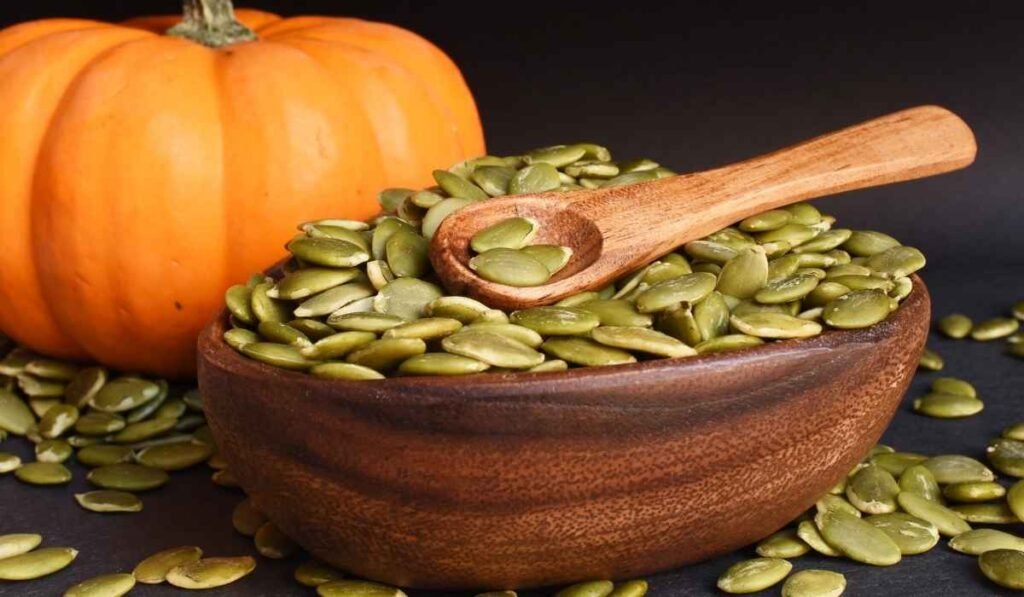
3. Apple Cider Vinegar (ACV)
ACV improves insulin sensitivity and helps in stabilizing blood sugar levels. Balanced insulin reduces androgen production, indirectly controlling acne. It also contains natural acids like acetic acid, which act as a mild exfoliant, unclog pores, and reduce acne scars.
Internal Use: Mix 1 tbsp of organic ACV in a glass of warm water and drink before meals to regulate insulin levels.
Topical Use: Dilute ACV with water in a 1:3 ratio. Use a cotton pad to apply it to the face as a toner, avoiding sensitive areas.
4. Green Tea
Green tea is rich in catechins, particularly Epigallocatechin Gallate (EGCG), which has anti-inflammatory and anti-androgenic properties. A 2016 study in Clinical Nutrition found that EGCG helps lower insulin levels, thereby reducing acne indirectly.
Drink 1-2 cups of green tea daily for systemic benefits.
If you want to drink both spearmint tea and green tea, you can have only one cup of each, no more than that.
5. Turmeric & Aloe Vera Gel
Turmeric contains curcumin, a powerful antioxidant with anti-inflammatory and antibacterial properties. Studies show curcumin inhibits the growth of acne-causing bacteria (Propionibacterium acnes). Aloe vera, on the other hand, promotes skin healing and reduces redness.
Mix 1/2 tsp turmeric powder with 2 tsp aloe vera gel. Apply to acne spots, leave for 15 minutes, and wash with lukewarm water. Apply this daily for better results.
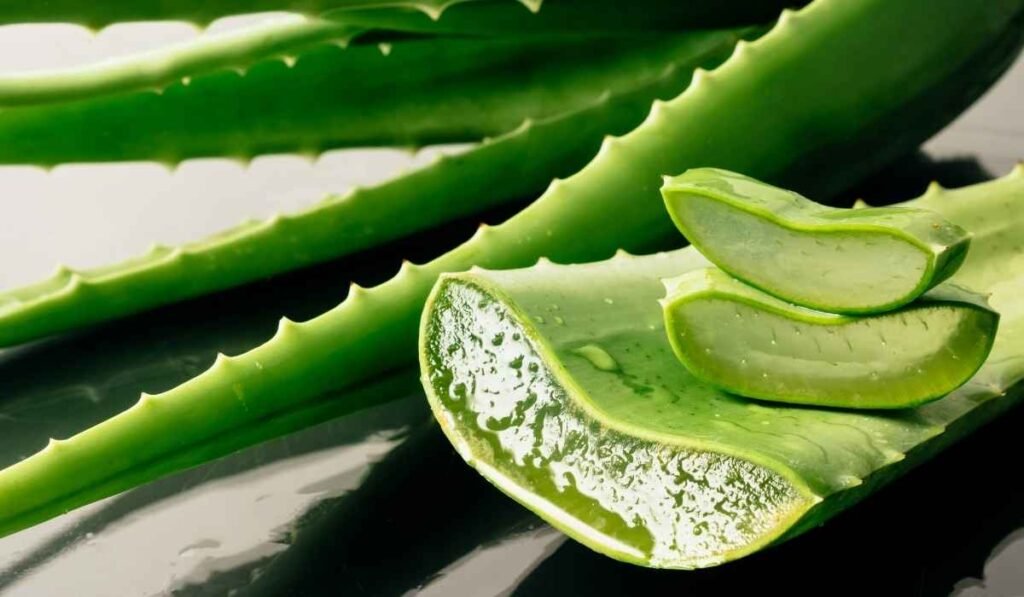
6. Tea Tree Oil
Tea tree oil is known for its antimicrobial properties, particularly against acne-causing bacteria. A 5% tea tree oil solution has been shown in studies to be as effective as benzoyl peroxide in reducing acne lesions but with fewer side effects.
Dilute 2-3 drops of tea tree oil with 12-13 drops of carrier oil like coconut or almond oil. Apply to acne spots using a cotton swab.
Do not apply tea tree oil without diluting it with carrier oil.
7. Fenugreek Mist
Fenugreek seeds contain compounds like diosgenin, which exhibit anti-inflammatory and antimicrobial effects. These properties help soothe acne and reduce redness.
Soak 2 tbsp fenugreek seeds in water overnight. Strain the water and store it in a spray bottle. Use it as a mist daily to calm acne-prone skin.
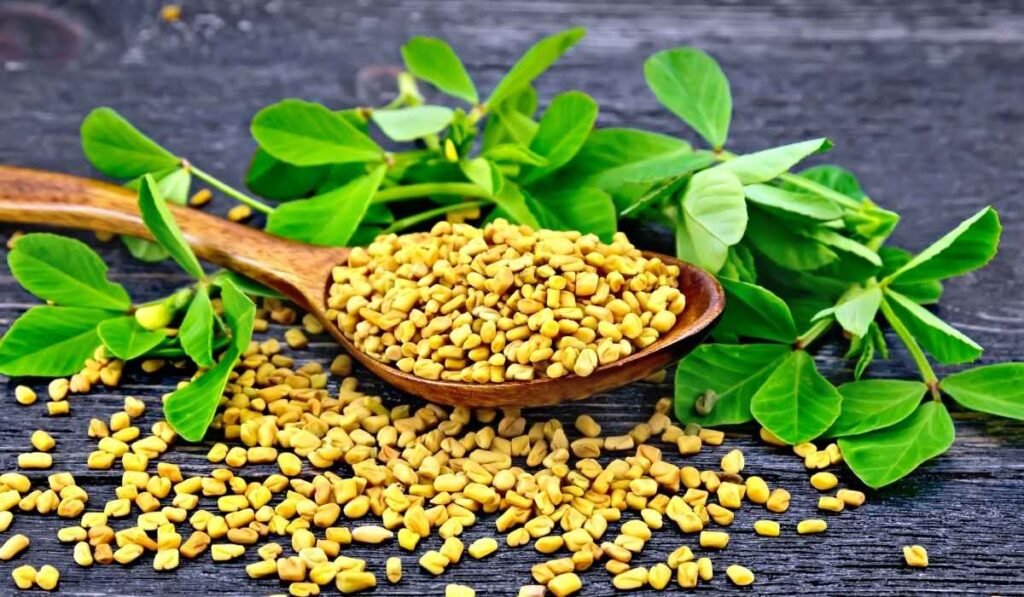
8. Honey & Cinnamon Mask
Honey, especially raw or Manuka honey, has natural antibacterial properties that combat acne-causing bacteria. Cinnamon improves blood circulation, delivers nutrients to the skin, and speeds up healing. A 2017 review in Complementary Therapies in Medicine confirmed these effects in managing acne.
Mix 1 tbsp raw honey with 1/2 tsp cinnamon powder. Apply to clean skin, leave for 10-15 minutes, and rinse with warm water.
You might be interested in How to Get Rid Of PCOS Belly.
A Skincare Routine for PCOS Acne:
- In the morning, wash your face with a gentle cleanser.
- Use an aloe vera or rose water toner.
- Apply non-comedogenic sunscreen.
- In night, Double-cleanse if wearing makeup.
- Finish with a light moisturizer or pumpkin seed oil
These remedies, combined with a balanced diet can significantly improve PCOS acne. Keep in mind that if you don’t improve your diet then these remedies will not work, so firstly focus on your diet.
Always test new products or remedies on a small patch of skin to ensure they suit your skin type.

